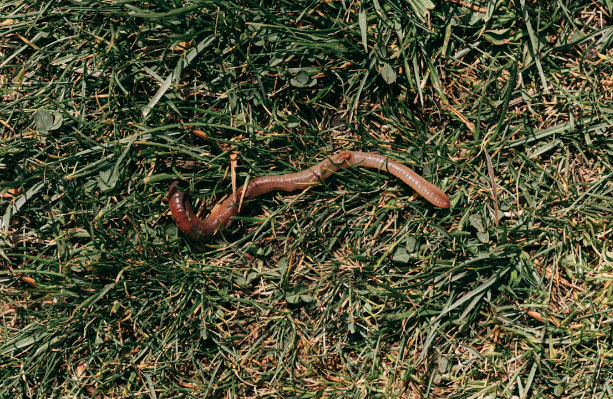After a rainy day, you walk outside and see many earthworms on the sidewalk. Do you wonder why worms come out when it rains? Earthworms are very interesting creatures, so we will learn more about them.
Why do worms come out when it rains?
First, let’s learn about why worms come out onto the sidewalk after it has rained. Worms need moisture to live, so if a worm needs to travel to another place, it might be easier to move on the surface after it rains because the ground is still wet. Sometimes the soil soaks up too much water, and the worms have to go to the surface before they drown. When it rains, the worms feel the raindrops falling on the dirt and may think it’s a predator, so they escape to the surface. These are all possible reasons why worms come out of the soil when it rains.
Interesting Facts About Earthworms
Earthworms are very interesting little creatures. A worm’s body is made up of many segments that the worm can move individually. These segments are called annuli. Even though a worm has no eyes, it can still sense light. Worms breathe through their skin, and they need to keep themselves moist. Worms are cold-blooded animals, which means that they can’t control their body temperature. Because of this, worms burrow deep inside the soil when it is too cold or hot on the surface. Worms prefer to be in the shade because it helps them maintain their moisture.
Why are worms important for the environment?
Earthworms have an important role in the environment. Worms eat organic plant matter, including roots, leaves, and grass. Then they release nutrients into the soil. By enriching the soil, the plants have more nutrients and can grow better. The worms make tunnels as they move underground, and these tunnels help the soil get more water and air. Worms are food for many animals. Some of the worm’s predators are birds, frogs, hedgehogs, snakes, and moles. When a bird is looking for worms to eat, the bird listens for the worm’s movement underground.
How can we help earthworms?
Earthworms are really good for the environment. Here are some ways to help worms. To have more worms in your garden, you could give the worms more organic matter to eat, for example, when you cut the grass, leave the cuttings on the soil. That way, worms have more to eat and can release more nutrients into the soil. Another thing you could do is keep the soil moist and healthy. Do not use chemical fertilizers in the garden because they are not good for the worms. While you are gardening, be careful where you dig to avoid hurting the worms in the soil. Whenever you are walking outside, look for worms on the sidewalk. If you see one, you should use a leaf or a stick to put the worm back in the soil. This way, no one steps on the worms, and the worms will not dry out on the sidewalk. Something else to keep in mind is that it is not a good idea to cut a worm in half. The worm may not be able to survive, and each half will not become a separate worm.
In conclusion, worms come out of the soil when it rains mainly to avoid drowning. Worms are very interesting and they are really important for the environment because they are food for many animals and they provide nutrients for the soil. There are many ways to help worms, such as picking up the worms from the sidewalk and returning them to the soil before they dry up.





























































































































